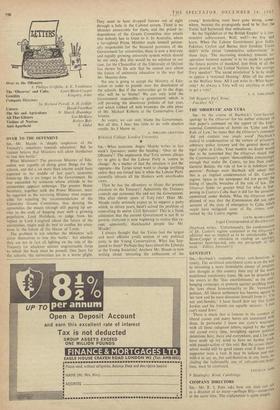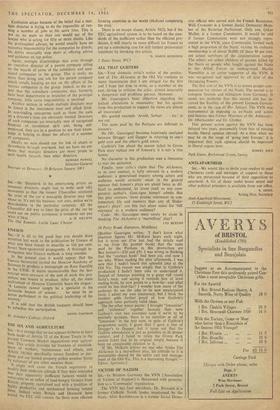COMPANY DIRECTORS
SIR,—Mr. R. J. Rees asks how one man Can :!ct as a director of so many—perhaps fifty—companies at the same time. The explanation is quite simple-
Confusion arises because of the belief that a mul- tiple director is trying to do the impossible of run- ning a number of jobs at the same time. This is not so, no more so than one would say of the lawyer who is acting for fifty or more clients. Like the professional adviser, he would usually have no executive responsibility for the companies he directs; his duties invariably stop short at offering advice and guidance on top policy. Again, multiple directorships may arise through an executive director of a parent company sitting on the boards of some of the subsidiary and asso- ciated companies in the group. This is really no more than doing one job for the parent company Which entails keeping an eye on the affairs of the various companies in the group. Indeed, to the ex- tent that the subsidiary companies may formerly have been departments or branches of the principal company, little extra responsibility is involved Another section in which multiple directors may be found is the investment trust and allied fields. In nun-trading enterprises such as these the calls Q m a director's time are obviously limited. Directors of such companies are invariably men of recognised financial or investment skill and, being self- ernPloyed, they are in a position to use their know- ledge in helping to direct the affairs of a number of companies.
Ideally no man should run the risk of ulcers or thrombosis through overwork, but we have no evi- dence that multiple directors are more prone to such health hazards than other directors.
Riot 1RD POWELL Director-General Insittute of Directors. 10 Belgrave Square.SW/



































 Previous page
Previous page